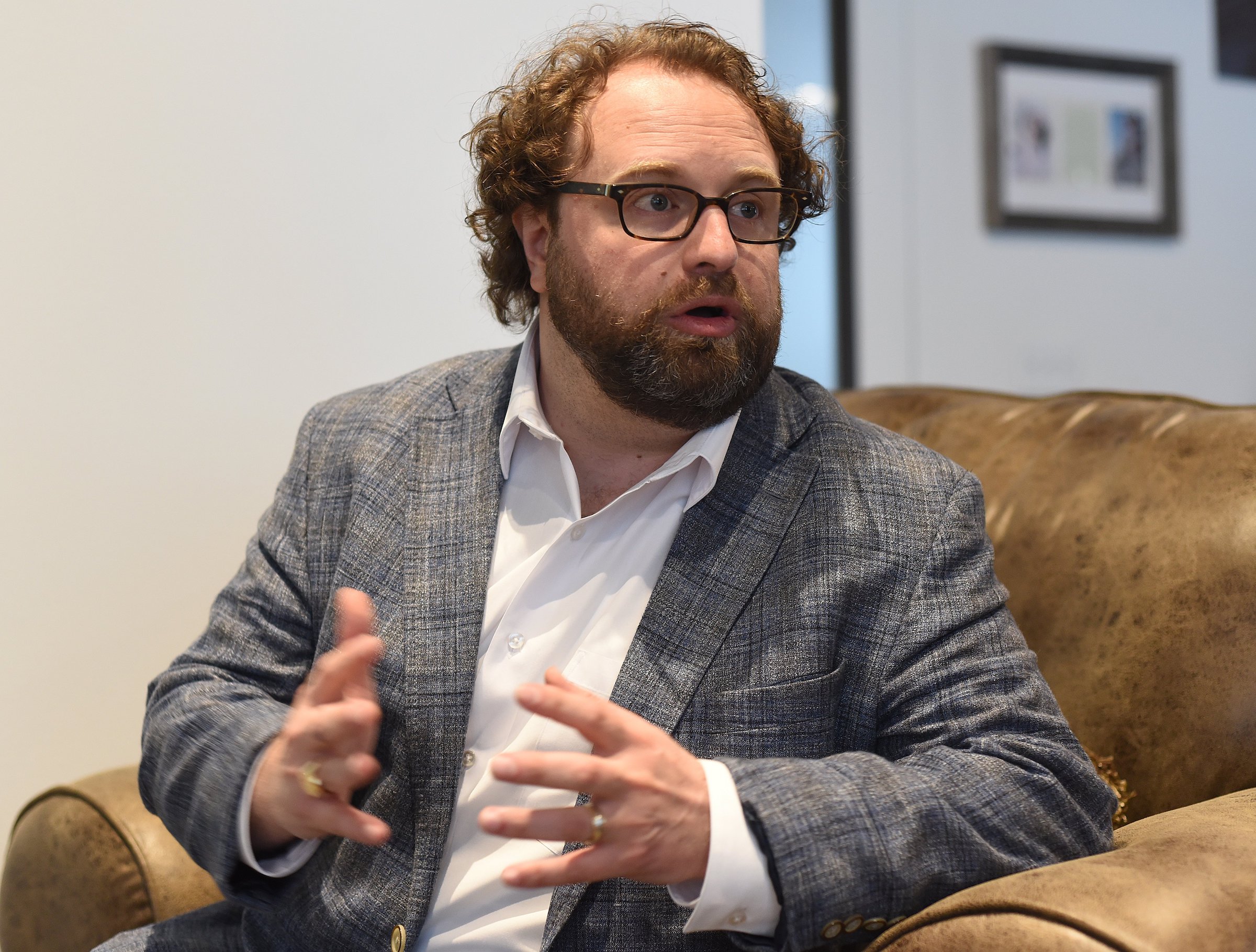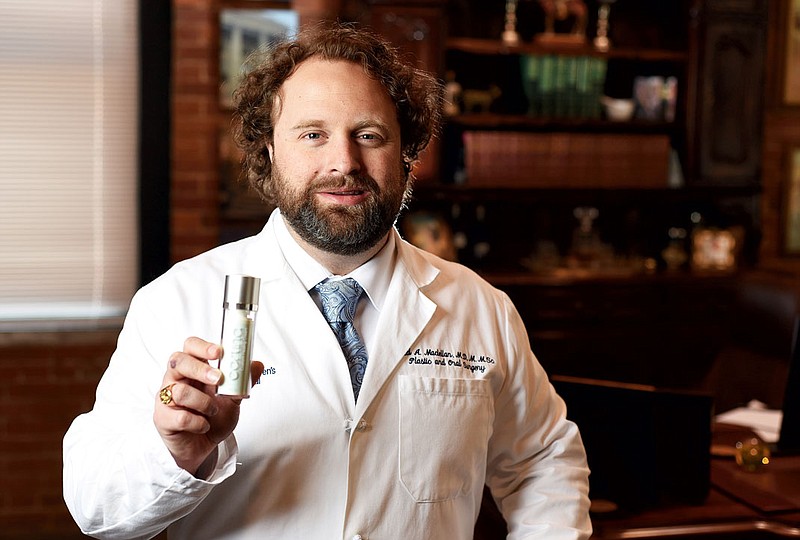Dr. Reid Maclellan says the aim of his Chattanooga-based startup company is to "democratize elite dermatology," and to do it in all 50 states.
Maclellan is founder and chief executive of Cortina Health, which officially launched this summer and uses tele-medicine and artificial intelligence to treat skin diseases and hair loss.
The entrepreneur, who also is an adjunct professor of plastic surgery at both Harvard Medical School and Boston Children's Hospital, says Cortina Health is the first tele-dermatology company operating in every state with its own compounding pharmacy.
"It's going phenomenal," he says about the business that employs about 20 people. "We've gotten a lot of traction nationally."
Operating out of Warehouse Row offices in downtown Chattanooga, the 38-year-old physician doesn't practice dermatology himself but rather has agreements with three of the certified specialists in each state working with patients.
Cortina Health sees patients after they go to the company website and submit case information, he says. The use of artificial intelligence helps determine what questions to ask about the patient's condition, which may include such ailments as acne, rosacea, and men's and women's hair loss, Maclellan says.
He says the patients can connect on any electronic device via the internet and also submit photos, and they're paired with a dermatologist who reviews the case in full.
"Everything is on a HIPPA-compliant platform and records system," the physician says.
Within three to seven days, the company can produce a medication that is personally produced for the patient.
"That medication didn't exist until it was made for you," Maclellan says, calling it "true personalized medication."
He says he's hopeful that Cortina Health will see between 40,000 to 60,000 cases within the first 12 to 18 months.
The business founder says there's not enough dermatologists in the United States to see patients in person.
According to projections by the Association of American Medical Colleges last year, the U.S. could see a shortfall of 37,800 to 124,000 physicians by 2034. Medical specialties, such as dermatology, are expected to see a shortage ranging from 3,800 to 13,400 physicians.
"A lot of dermatology can be done virtually," Maclellan says.  Staff photo by Matt Hamilton / Dr. Reid Maclellan talks about Cortina Health on Tuesday, August 2, 2022.
Staff photo by Matt Hamilton / Dr. Reid Maclellan talks about Cortina Health on Tuesday, August 2, 2022.
Cortina Health's launch came after about nine months of testing to refine its processes, says Maclellan, who earned his medical degree from the University of Alabama and did post-doctoral work at Harvard in commercialized medicine.
The surgeon says his specialty is in vascular abnormalities. While important work, he says he realistically might serve 10,000 to 20,000 people over his lifetime. But with the new venture, Maclellan says the number of cases that could be treated might increase by 1,000 times or more.
He says he decided in 2017 to start the company, but spent about a year researching the business, which he founded in March 2019 and calls "a new future for dermatology." So he left his full-time practice and moved to Chattanooga for his health care technology business, where he runs its day-to-day operations.
He says his first patient was his wife, Brooke, who has had severe acne.
"She tried many different products," Maclellan says. They married in February 2019 and honeymooned in Cortina, Italy, where his wife saw an improvement to her skin which she thought was due to that part of the world's air and water. So the name of the company comes from that experience.
Eventually, he formulated a medical prescription of ingredients for his wife to create a custom healing creme.
"Her skin cleared up," the physician says. "We knew we were onto something."
Maclellan says he grew up in Birmingham, Alabama, where he was raised by a single mother. She later met and married Scott Maclellan, a member of the well-known Chattanooga family. At age 26, he was legally adopted and changed his name to Maclellan.
"The Maclellan family has a tremendous legacy," he says. "I thought I'd come here and create my own legacy."
